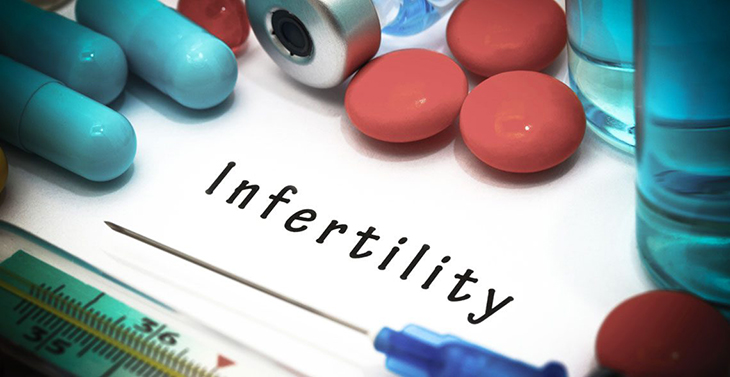
Women who have faced infertility are at an elevated risk of reporting sleep disturbances during menopause. Research indicates that midlife women with a history of fertility challenges could potentially gain from assessments for mood and sleep disorders.
It’s quite likely that either you or someone within your social circle has encountered infertility, as approximately 1 in 9 women in the United States struggle with achieving pregnancy or sustaining a pregnancy to term. A recent study involving almost 700 women, published in the August 1 issue of the journal “Menopause,” reveals that infertility may exert a long-term impact on women’s well-being, influencing the severity of their menopausal symptoms.
“When we looked at individual symptoms reported, the categories of symptoms with increased reporting or severity among women with infertility included depressive mood, irritability, and sleep problems,” said Victoria Fitz, MD, the lead author of the study. She’s also an ob-gyn fellow at Massachusetts General Hospital in Boston.
“If our findings are confirmed in other studies, it would suggest that providers should consider history of infertility as a risk factor for depressive mood and sleep problems in midlife, and possibly initiate screening for these conditions earlier or with greater frequency,” Dr. Fitz added.
Women’s Reproductive History May Have an Impact on Menopause
The timing of menopause and the severity of its symptoms can be influenced by various factors in a woman’s reproductive history, as stated by the authors of the research. For instance, evidence from the National Institutes of Health indicates that pregnancy and breastfeeding may reduce the risk of early menopause. Conversely, women facing infertility issues might experience menopause at an earlier age. Early menopause, occurring before the age of 45, is linked to increased risks of premature death, cognitive decline, osteoporosis, and heart disease.
Furthermore, research suggests that women who have struggled with infertility are more likely to encounter diminished sexual desire and vaginal dryness during menopause, as indicated in a prior study. Stressful life events, including infertility, have been associated with heightened reports of menopausal symptoms. In fact, infertility has been found to cause levels of stress comparable to receiving a cancer diagnosis, highlighting its significant impact on a woman’s overall well-being.
Infertility May Cause Depression, Sleep Problems, and Irritability
In this research, the primary aim was to specifically assess how a lifetime history of infertility impacts the occurrence of menopausal symptoms during midlife. The study cohort consisted of women who were initially recruited in their thirties and then monitored for an average duration of 18 years.
Among the 695 participants, approximately 36.6 percent reported having faced infertility, a rate exceeding the national average for infertility cases.
Following adjustments for potential confounding variables that could influence menopausal symptoms, the findings of this novel investigation indicated that women with a prior history of infertility exhibited a higher relative risk of experiencing issues related to sleep, depressive mood, and irritability during the menopausal transition.
Although previous studies have shown that there’s a link between infertility and depression, this is the first one to demonstrate how a previous history of infertility was associated with depressive symptoms that happen specifically in midlife, the authors had written. “It is important for women and providers to be aware of the association of history of infertility and depressive mood, because it suggests that history of infertility could be used to trigger increased screening for depressive symptoms during midlife years,” Fitz said.
Menopause-Related Depression and Its Subsequent Treatment
Luckily, Dr. Julia Riddle, an assistant professor at the Center for Women’s Mood Disorders and a psychiatrist and clinical researcher specializing in reproductive mental health at the University of North Carolina School of Medicine in Chapel Hill, reassures that there are several treatments accessible for this condition.
“Assessing and appreciating the mood impact of infertility — or its concurrence in the case that it is not a cause-effect relationship — is vital. There are treatments — medical evaluation, modalities of therapy, sleep interventions, community support, and, when necessary, [medication] — that help to alleviate symptoms,” Dr. Riddle said. It must be noted that she was not part of this newest study.
She emphasized the significance of healthcare providers treating women and individuals with female reproductive symptoms to understand the implications of navigating various reproductive transitions throughout life.
Why Might Infertility Make Cause Depression in Midlife?
Although the analysis made was not made to point out the cause of the association, the authors did offer a few possible reasons for the said link. “We theorize that the association may be related to hormone levels, such as estrogen. However, if that were the case, we would have expected to see an association with outcomes such as hot flushes [or flashes] and vaginal dryness, which we did not identify,” Fitz said.
“The other proposed theory is that infertility is a negative life event or stressor, and there is evidence that negative life events can impact the experience of menopausal symptoms,” she explained.
Researchers Found No Link Between Infertility and Hot Flashes, Vaginal Dryness, or Anxiety
“Many patients with infertility have questions about the implications of this diagnosis on other health outcomes and later reproductive health,” Fitz said.
In a positive light, the study revealed that infertility did not affect the age at which menopause occurs. Additionally, it did not increase the likelihood of experiencing menopausal symptoms such as hot flashes, vaginal dryness, or anxiety. However, these findings should be validated through further research in other studies, according to her.
What to Do if You Have Symptoms of Depression
If you’re experiencing symptoms of depression, it’s best to speak with your healthcare provider, Riddle advised. “More specifically, schedule a special appointment or message your provider in advance that you want to discuss mood symptoms and make it clear if this is new in the setting of menstrual changes,” she said.
Riddle advised giving your doctor advance notice so they can be prepared and ensure there’s ample time during the appointment to discuss your concerns.
“For mood changes during reproductive transitions such as perimenopause, seek out reproductive psychiatrists, psychologists, or clinicians with specialized training if possible. These mood changes are real, and we need to keep paying attention to them. There are treatments. People do get better. Depression is not a foregone conclusion,” she also said.



